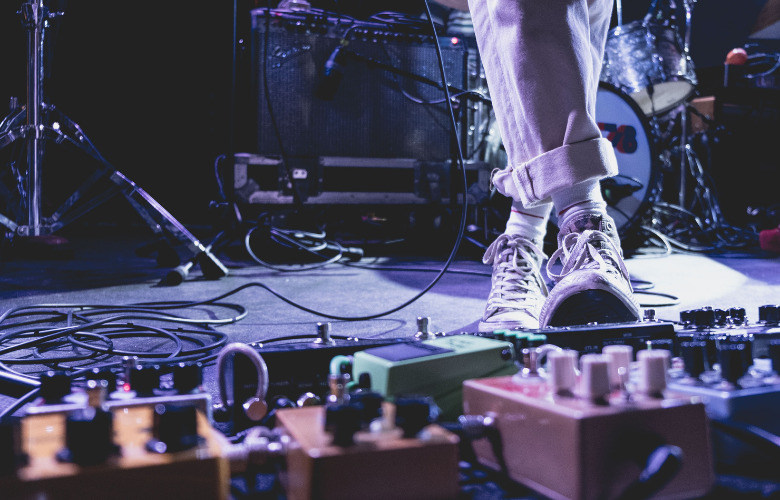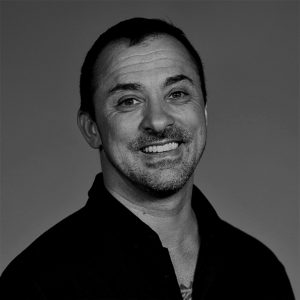
This past June, concert touring veteran Lance “KC” Jackson celebrated 44 consecutive years in the live entertainment industry. The many artists KC has worked with include Luther Vandross, Boyz II Men, New Kids On The Block, Justin Bieber, and he is currently on the road as Production Stage Manager for Earth, Wind and Fire with Santana on the Miraculous Supernatural Tour. In this interview that he gave for PLSN (Projection Lights & Staging News) he tells us about his fascinating touring career.
Throughout his career Lance “KC” Jackson has worn many hats, working as an audio technician as well as property master, stage manager, and production manager.
One hat he always wears is that of mentor. KC generously shares his experience and knowledge with those coming up in the industry.
He also has put action to his desire to improve the industry for everyone by being a co-founder, with Bill Reeves, of Roadies of Color United (R.O.C.U).
Started in 2009 as a social network, R.O.C.U. has now grown into a non-profit organization recognized industrywide as an advocate for a more diverse and inclusive industry for all.
Here is a shortened version of the interview with Lance “KC” Jackson, courtesy of Projection Lights & Staging News. To read the full interview, please head over to the PLSN website.
Over the years, it was a combination of things.
I learned to wear a lot of different hats. I went to school for audio engineering, and on my first tour, which was a big one, The Commodores’ Platinum tour, I was the front of house engineer for LTD, the opening act.
But from there I couldn’t find another job as a sound engineer right away. In those days, particularly in R&B, you worked for a certain band and other bands were rivals.
You couldn’t just go from one band to another band. You sort of belonged to that band.
However, I came into the business at a good time because there was an emergence of solo artists and new bands—all of which needed crews.
So, I had the opportunity to not be dependent on just that one group. I spent some time working as a guitar tech, keyboard tech / programmer, carpenter, and as a drum tech.
I was very good at repairing things because I had electronics one and two in high school. I would also be blessed to get behind the board again to mix monitors and front of house off and on.
Wearing all those different hats set me up to be able to utilize all those experiences to become a stage manager.
Initially, as a talent stage manager, which is significantly different than being a production stage manager.
As talent stage manager you dealt with the band and usually production was already set up.
The production would give you your time slot of when to come in, get your gear set up, do your sound check, do your show, and then pack your stuff up after your performance, which is pretty simple.
So, that was where I started, and I took all those experiences to do what I do today in my role as production stage manager.
Oh, absolutely. I refer to it as my baptism by fire. In 1994, I was the guitar tech for Boyz II Men on their II tour and I also was a talent stage manager.
On that tour, I had the privilege of working with a gentleman named Norman Williams, who was the production stage manager. We started working together and became a team.
I got a little bit more involved in the production side of things. We would share some of the responsibilities to take a little bit of the load off him.
Long story short, Norman abruptly left the tour, and I was given the opportunity to take his place.
Knowing only half of what he did, not knowing everything that he did, that’s why I refer to it as my baptism by fire.
But that gave me the opportunity for the first time to be a production stage manager on a 15-truck show.
It was a huge tour and, like I say, I acquired quite a bit of knowledge from Norman. For the rest of it I had to feel my way and it was a pass or fail project.
If I didn’t come through on that tour, I think that door might have been closed for a while. The Boyz II Men tour was certainly the project that set me on the path that I’m on now.
It’s universal. It’s very simple. You’re as good as your last show.
You could be in the business for 20 years, one year, 10 years, but the most important show that you’ll do is the one that you’re doing.
If you go and mess that up, then a door can close. You can get sent home.
Complacency is something that you have to be careful not to fall into, or as I refer to it: Groundhog Day. Every day is the same job, but it’s a different city. It’s different people.
You must come in like this is the most important show in your career, because you’re only as good as that show.
I think you need to develop diplomacy and patience. Both take awareness. These are not natural instincts for any individual.
You have to be mentally focused to be diplomatic and to remain patient during the course of the day. There are good days and there are bad days.
Another important thing is to know how to stay in your lane, understand what your job is.
As a production stage manager, the two most important responsibilities I have is time management and allocation of resources.
The department heads all have their job to do, but it is my job to manage the time that they have to do their job and provide them with the resources to do that job in that time.
It takes communication to find out what those resources are and what each department needs.
Then if somebody asks me a question about sound, I’m going to go to my sound department heads. If it’s a lighting question, I want to go to my lighting crew chief.
My advice: don’t micromanage and stay in your lane. The most important thing is it’s a team effort and everyone respects each other’s positions and their jobs.
You will have better cooperation with your department heads because you’re respecting everyone’s position.
It’s a sense of fulfilment. To walk into an empty building, an arena, a theatre, and to then build a production.
To do that successfully every day and have everybody walk away at the end of the day, safe and having had a good show, it’s like magic.
Most people won’t get it. I have friends who think that when they go to a concert, no matter what band comes in there, that there’s this big closet with all this stuff that comes out for that band. They don’t see the trucks; they don’t see the buses; they don’t see what goes into putting that show together.
It’s a kind of magic that intrigues me. It’s been 44 years and I still love this business.
Original article at PLSN (permission to re-publish by R.O.C.U.)
Official Website Roadies of Color United (R.O.C.U.)
Roadies Of Color United – End Of The Year Reflection
A Fundraiser In Times of Crisis – Roadies Of Color United


Liam Klenk was born in Central Europe and has since lived on four continents. Liam has always been engaged in creative pursuits, ranging from photography and graphic design, to writing short stories and poetry, to working in theatre and shows. In 2016, Liam published his first book and memoir, 'Paralian'.
Read Full Profile© 2021 TheatreArtLife. All rights reserved.

Thank you so much for reading, but you have now reached your free article limit for this month.
Our contributors are currently writing more articles for you to enjoy.
To keep reading, all you have to do is become a subscriber and then you can read unlimited articles anytime.
Your investment will help us continue to ignite connections across the globe in live entertainment and build this community for industry professionals.